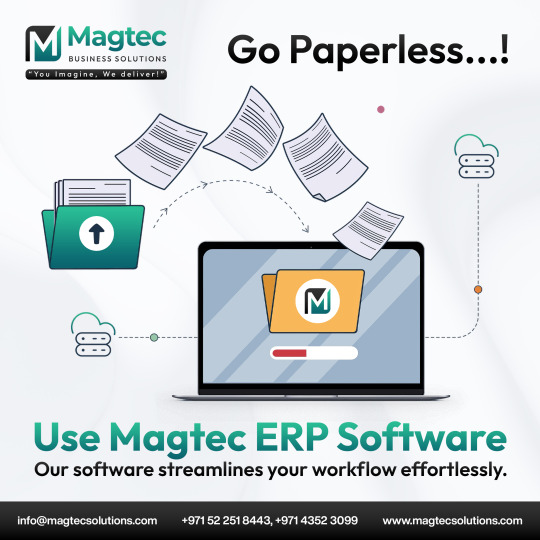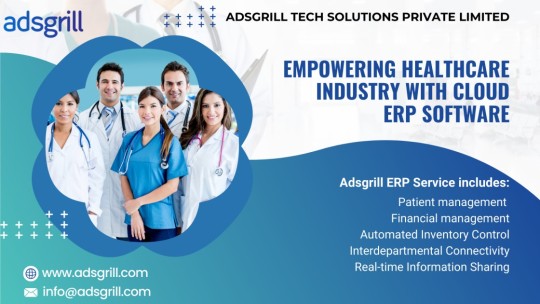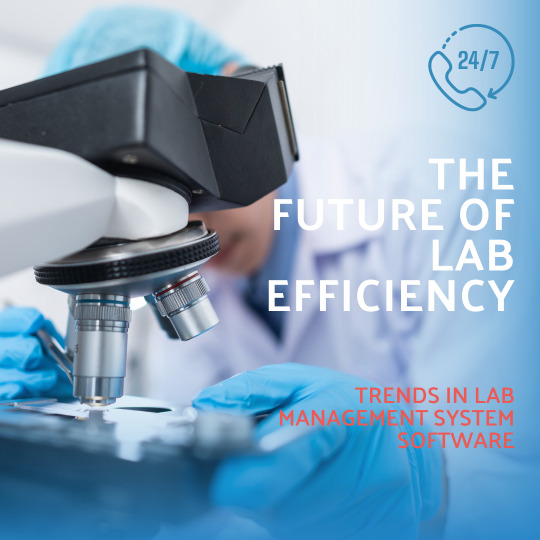#hospital erp software
Explore tagged Tumblr posts
Text
Best hospital management software

#hospital management software#appointment management system#Hospital Management#ERP#Healthcare Management Software#Appointment Scheduling Software#Patient Management System#Hospital ERP Software
0 notes
Text
Stay Ahead of the Curve: How Lab Software Can Revolutionize Your Research
In today’s fast-paced medical landscape, efficiency is crucial. Laboratories, whether in hospitals or independent, require precise and swift operations. Here, technology plays a pivotal role. Cutting-edge lab software like Hospital Management Systems (HMS), Laboratory Information Management Systems LIMS for pathology, and Hospital ERP software are transforming how labs function. This article delves into how these software solutions enhance efficiency and streamline lab operations.

The Role of HMS Software in Labs
Hospital Management System HMS software is integral to modern medical facilities. This software consolidates various hospital functions into a single platform, ensuring seamless integration and efficient management.
Streamlined Operations
HMS software automates routine tasks such as patient registration, appointment scheduling, and billing. This automation reduces administrative workload, allowing lab technicians and medical professionals to focus on patient care.
Enhanced Data Management
With HMS software, labs can store and manage vast amounts of patient data securely. This ensures quick retrieval of information, aiding in accurate diagnosis and treatment planning.
LIMS for Pathology: Precision and Accuracy
Laboratory Information Management Systems (LIMS) for pathology are designed specifically for the unique needs of pathology labs. These systems enhance the precision and accuracy of lab operations.
Improved Sample Tracking
LIMS software tracks samples from collection to analysis, reducing the risk of errors and ensuring that each sample is processed correctly. This meticulous tracking enhances reliability and accuracy in test results.
Integration with Diagnostic Equipment
Modern LIMS can integrate with various diagnostic instruments, allowing for automated data transfer and reducing manual entry errors. This integration speeds up the diagnostic process and improves overall lab efficiency.
Hospital ERP Software: A Comprehensive Solution
Hospital ERP (Enterprise Resource Planning) software provides a holistic approach to managing hospital resources, including laboratory functions. It combines various modules like finance, HR, and inventory management, offering a unified solution.
Optimised Resource Management
Hospital ERP software ensures optimal utilisation of resources. For instance, it can manage inventory, ensuring that necessary reagents and supplies are always available, thus preventing delays in lab operations.
Enhanced Communication
With ERP systems, different departments within a hospital can communicate seamlessly. This improved communication ensures that lab results are promptly shared with the relevant medical teams, facilitating quicker treatment decisions.

Incorporating advanced lab software like HMS, LIMS for pathology, and Hospital ERP software can significantly boost the efficiency of laboratory operations. These technologies streamline workflows, enhance data accuracy, and optimise resource management. As the healthcare sector continues to evolve, embracing these cutting-edge solutions will be crucial for laboratories aiming to deliver top-notch patient care and stay ahead in the industry. Investing in such software not only enhances operational efficiency but also ensures that labs can meet the growing demands of the medical field with precision and reliability.
0 notes
Text
The Power and Benefits of Hospital Management Systems
Introduction
In today's fast-paced world, the healthcare industry is facing unprecedented challenges. The demand for efficient, quality care is on the rise, and healthcare institutions are constantly striving to meet these demands. In this context, Hospital Management Systems (HMS) have emerged as powerful tools that transform how hospitals operate, benefitting healthcare providers and patients. This blog delves into the key features and benefits of Hospital Management Systems, shedding light on how they enhance hospital operations and patient care.
Key Features of Hospital Management Systems
Management-Oriented Features
Doctor Timetables and Appointments: HMS facilitates efficient scheduling for doctors, reducing wait times and ensuring that patients can book appointments seamlessly.
Pharmacy Management: It helps hospitals monitor medication inventory, streamline procurement processes, and ensure that essential drugs are readily available when needed.
Ward Management: Hospitals can plan and track the utilization of individual wards more effectively, ensuring that resources are allocated efficiently.
Patient-Oriented Functions
Patient Registration: Simplifying the registration process for patients, creating Personal Health Records, and streamlining administrative tasks.
Patient Admittance Information: Maintaining Electronic Medical Records and integrating them with other medical databases, allowing for a comprehensive view of a patient's medical history.
Billing and Insurance: Efficiently managing patient billing, insurance claims, and credit tracking, reducing financial stress for both patients and healthcare providers.
Patient Notification: Keeping patients informed about appointments, medication schedules, and other important information, enhances patient engagement.
Pharmacy Information for Patients: Empowering patients to purchase or pre-order medications conveniently, improving medication adherence.
Four Basic Requirements for a Hospital Management System
User-Friendly Design: A Hospital Management System should have an intuitive and user-friendly interface that caters to users of all computer skill levels, from medical staff to patients. This ensures that the system is accessible and easy to use, fostering adoption and reducing training time.
Data Handling: Hospital Management Systems must efficiently collect, store, process, and output vast amounts of data in various formats, including text, images, and videos. This capability is crucial for providing comprehensive patient care and for the management of hospital operations.
Data Security: Ensuring compliance with data security regulations is paramount to protect sensitive patient information from unauthorized access, data loss, or corruption. Robust data security measures safeguard patient privacy and maintain the hospital's reputation and trust.
Rapid Response: The system should allow for swift patient registration during emergencies and quick retrieval of relevant data. In critical situations, every second counts, and a well-designed Hospital Management System can make a significant difference in patient outcomes.
Benefits of Hospital Management Systems
Enhanced Productivity: HMS streamlines daily operations, reducing human errors, and increasing efficiency. It automates tasks like updating patient histories, optimizing appointment schedules, and managing inventory, reducing downtime and queues.
Improved Communication: HMS promotes seamless communication between hospital departments and wards by providing quick access to essential data such as test results, schedules, and inventory levels. This leads to better coordination and ultimately, improved patient care.
Enhanced Patient Experience: Patients benefit from automated notifications for appointments and medication schedules, improving their overall experience and trust in healthcare services. A well-informed patient is more likely to adhere to their treatment plan.
Optimized Billing: The system simplifies financial transactions, enabling various payment methods for medical services and products, benefiting both patients and healthcare providers. This leads to quicker payments, reduced administrative overhead, and increased revenue for the hospital.
Performance Tracking: Hospital administration can monitor staff performance and generate comprehensive reports. This data helps identify revenue-generating services, allocate resources efficiently, and resolve potential issues before they escalate. It also contributes to data-driven decision-making, ensuring the hospital is operating at its best.
Conclusion
In conclusion, Hospital Management Systems have revolutionized the healthcare industry by addressing the complex needs of modern hospitals. These systems streamline operations, enhance patient care, and improve the overall hospital experience. With user-friendly interfaces, robust data handling capabilities, and a commitment to data security, HMS ensures that healthcare institutions can focus on what truly matters – the well-being of their patients.
As the healthcare landscape continues to evolve, Hospital Management Systems will play an increasingly vital role in ensuring that hospitals can meet the growing demands for quality care while maintaining efficiency and patient satisfaction. They are not just software suites but the backbone of modern healthcare management.
0 notes
Text

Tired of paper piles? 🚫 Go paperless with Magtec ERP Software! 💻 Streamline your workflow and boost efficiency. It's time to embrace the digital future.
#erp#business#software#management#automation#enterprise#resources#planning#solution#system#cloud#industry#finance#accounting#supplychain#inventory#crm#hr#manufacturing#distribution#retail#healthcare#education#hospitality#smallbusiness#mediumenterprise#largeenterprise#magtecerp#magtec#magtecsolutions
3 notes
·
View notes
Video
youtube
5 Things To Know Before Choosing Right Healthcare ERP Solutions with Sigma HIMS (Hospital Information Management Software) by Sigmen Technologies Solutions
7 notes
·
View notes
Text

The healthcare industry plays an important role in society by offering people access to crucial medical services. These industries face several challenges that affect the healthcare industry’s capability to deliver cost-effective and efficient care. These problems, which range from regulatory difficulties to technological improvements, can have a significant impact on how healthcare is delivered and patient outcomes.
A good ERP solution unites all of the diverse parts of a complex healthcare organisation under a single roof. Each component is meant to work in tandem with the others, giving carers unrestricted access to all data across the organisation. Data can be shared across patient, pharmacy and clinician systems, as well as back-office administrative, personnel, and financial systems, allowing for better cost tracking and resource management.
#erp software#erp implementation#erp#healthcare#erp for small business#hospital erp software in saudi arabia
2 notes
·
View notes
Text
Odoo Hospital Management System
Transform Healthcare with Odoo Hospital Management System!
Effortlessly manage patients, appointments, billing, inventory, and more—all in one powerful solution. Enhance efficiency and streamline operations today! 🚀
Visit us = https://www.candidroot.com/odoo-hospital-management-system
#odoo#hospital management system#hospital management software#odoo hospital management system#odoo hospital management software#odoo erp#erpsoftware#erp system#odoo healthcare#healthcare
0 notes
Text
Oracle Netsuite POS in India
The oracle NetSuite POS in India enables you to satisfy Omni channel shoppers and build customer loyalty to offer a superior experience and manage comprehensive reports that enable you to make informed decisions, identify trends and optimize your strategy.
#Oracle NetSuite POS India#Boost Your Sales Operation India#Power of Retail Bill Software for Streamlined Operations India#Hospitality POS system#Point of sale#Retail bill software#Billing software for stores#POS for oracle netsuite ERP
0 notes
Text
Best Hospital Management Software in India for 2025
In 2025, hospital management software (HMS) is vital for Indian healthcare providers to streamline operations, improve patient care, and enhance efficiency. Hospital ERP Software integrates key functions like patient management, billing, inventory, and laboratory automation into one system, ensuring compliance and scalability. oeHealth stands out as a leading provider, offering customizable modules, a user-friendly interface, robust data security, and expert support. Key features include EHR, financial integration, and cloud accessibility. With rising healthcare demands, choosing oeHealth's hospital management software in India ensures affordable, innovative solutions tailored to your needs. Revolutionize your operations with oeHealth’s advanced hospital ERP systems.
To know more please read blog https://www.oehealth.in/blog/oehealth-blog-1/best-hospital-management-software-in-india-for-2025-7
0 notes
Text
youtube
Hotel Management Software in Bangladesh | Hotel Management System & Booking Software
#Hotel Reservation System#Hotel Management Software#Hotel Software Solutions#Hospitality Management#Front Desk Software#Hotel Automation#Hotel Business Solutions#Hotel Software Demo#Hotel Industry#Hotel Booking Software#Hotel Inventory Management#Hotel POS#Cloud Based Hotel Software#Hotel Check In System#Hotel ERP#Youtube
0 notes
Text

#erp software#image#business#marketing#hospitality#hotels#small business#finance#accounting software
0 notes
Text
Our custom software development services are designed to create tailored solutions that meet your unique business needs. From initial consultation and requirements gathering to development, testing, and deployment, we ensure a seamless process. Our team of experienced developers specializes in building scalable, secure, and efficient software that enhances your operational efficiency and drives growth. Whether you need a web application, mobile app, or enterprise software, we deliver high-quality, innovative solutions that align with your goals and exceed your expectations.
1 note
·
View note
Text
Unleash the Power of Technology in Your Lab with Lab Software
In today’s fast-paced healthcare environment, efficiency is paramount. Laboratories, especially in pathology and hospital settings, require robust software solutions to manage their extensive data and workflows effectively. The integration of cutting-edge lab software, such as Hospital Management System HMS software , Laboratory Information Management Systems (LIMS) for pathology, and Hospital Enterprise Resource Planning (ERP) software, can significantly enhance a lab’s operational efficiency. This article delves into how these advanced software solutions can revolutionise your lab’s performance.

HMS Software: Streamlining Hospital Operations
Hospital Management System (HMS) software is designed to manage the comprehensive operations of a hospital. It integrates various functions such as patient registration, appointment scheduling, billing, and inventory management. For pathology labs, HMS software offers seamless integration with laboratory operations, ensuring that patient information flows smoothly from the hospital’s departments to the lab.
HMS software reduces administrative burdens and minimises errors by automating data entry and management. This leads to improved patient care, as healthcare providers can access accurate and up-to-date information promptly. Furthermore, HMS software enhances communication between different hospital departments, fostering a collaborative environment.
LIMS for Pathology: Enhancing Lab Workflow
Laboratory Information Management Systems LIMS for pathology are specifically designed for managing laboratory data and workflows. In pathology labs, LIMS software plays a crucial role in sample tracking, test result management, and quality control. It ensures that every sample is accurately tracked from collection to result delivery, reducing the risk of sample mix-ups and errors.
LIMS for pathology streamlines the workflow by automating routine tasks, such as data entry and report generation. This not only saves time but also improves the accuracy of lab results. With features like electronic record-keeping and automated alerts, LIMS software helps labs maintain compliance with regulatory standards, ensuring high-quality outcomes.
Hospital ERP Software: Integrating Operations
Hospital Enterprise Resource Planning (ERP) software integrates various hospital operations into a unified system. It covers everything from financial management and human resources to supply chain management and patient care. For pathology labs, integrating with hospital ERP software means better resource management and coordination.
Hospital ERP software provides real-time data analytics, helping lab managers make informed decisions about resource allocation and process improvements. This leads to enhanced productivity and cost-efficiency. By integrating lab operations with other hospital functions, ERP software ensures that the lab operates as an integral part of the hospital ecosystem, leading to better overall patient care.

The adoption of advanced lab software solutions like HMS software, LIMS for pathology, and hospital ERP software can transform the efficiency and effectiveness of pathology labs. These tools automate routine tasks, improve data accuracy, and enhance communication within the hospital. By streamlining workflows and integrating operations, they enable labs to deliver faster, more reliable results, ultimately improving patient care. Investing in cutting-edge lab software is not just a technological upgrade; it’s a strategic move towards operational excellence.
0 notes
Text
#erp software for manufacturing industry in india#erp software development company in india#erp software companies in india#custom erp software development#hospital management software in india.#custom erp software development in india#erp manufacturing software#erp software for manufacturing industry#erp software development company#erp software companies
0 notes
Text
Can HMS Software Manage All Your Hospital Workflows?
Explore the transformative capabilities of Hospital Management System (HMS) software in optimizing and managing all aspects of hospital workflows. From patient registration and appointment scheduling to billing, inventory management, and electronic health records (EHR), HMS software offers a comprehensive solution to streamline operations and enhance efficiency. With user-friendly interfaces, customizable features, and robust security measures, HMS software empowers healthcare providers to deliver quality care while improving productivity and patient satisfaction. Say goodbye to manual processes and embrace the future of healthcare management with HMS software.
0 notes
Text
The Future of Lab Efficiency: Trends in Lab management system software

The integration of cutting-edge technologies has become imperative to enhance efficiency, sustainability, and productivity. The future of lab efficiency is intricately linked to the adoption of innovative Lab management system software solutions that streamline processes, optimize resource utilization, and drive advancements in research and development. This detailed blog delves into the key trends shaping the future of lab efficiency through software innovations.
Data-Centricity and Unified Platforms
One of the defining characteristics of the lab of the future is data-centricity. Laboratories are increasingly relying on unified modern platforms that seamlessly connect Laboratory Information Management Systems (LIMS), Electronic Lab Notebooks (ELNs), Laboratory Execution Systems (LES), and Scientific Data Management Systems (SDMS). By breaking down data silos and leveraging structured data, labs can make informed decisions, enhance collaboration, and drive research outcomes.
Automation and Robotics
Automation and robotics are set to play pivotal roles in enhancing lab efficiency. As the demand for greater productivity rises, smart quality initiatives are driving lab digitization and automation. Automation empowers technicians by relieving them of repetitive tasks, ensuring compliance with regulations, and enhancing operational efficiency. Robotics are poised to revolutionize physical tasks in labs, from sample preparation to inventory management, thereby optimizing workflows and reducing manual errors.
Artificial Intelligence and Machine Learning
The integration of Artificial Intelligence (AI) and Machine Learning (ML) technologies is reshaping lab operations. Neural networks, computer vision, and text mining are already delivering significant improvements in forecasting, optimization, and analysis. The lab of the future will feature AI-controlled 'lab assistants' and advanced analytics tools that enable efficient troubleshooting, supply chain management, and real-time trend monitoring for actionable insights.
Cloud-Native Development
Cloud-native development is emerging as a key trend in Lab management system software development. This approach focuses on building applications specifically for the cloud, offering rapid scaling, flexibility across different platforms, and enhanced reliability during disruptions. By embracing cloud-native strategies and utilizing technologies like Docker, Kubernetes, and Node.js, labs can accelerate application development, reduce costs, and adapt to dynamic operational needs.
Connectivity and Virtual Reality
The future lab environment will be characterized by enhanced connectivity and the integration of virtual, mixed, and augmented reality technologies. These innovations are set to streamline data entry, improve access to information, and minimize errors through mixed-reality solutions. The shift towards digital connectivity features and virtual technologies will empower labs to adapt to new modalities, enhance agility, and drive operational efficiency. In conclusion, the future of lab efficiency is deeply intertwined with the adoption of advanced software solutions that prioritize data-centricity, automation, AI integration, cloud-native development, and connectivity. By embracing these trends and leveraging cutting-edge technologies, laboratories can unlock new levels of productivity, sustainability, and innovation in their research endeavors. Stay tuned for more insights on the evolving landscape of lab efficiency and Lab management system software trends!
#lab management systems#lab management system software#lab management#lab management software#hospital erp#healthcare management system
0 notes